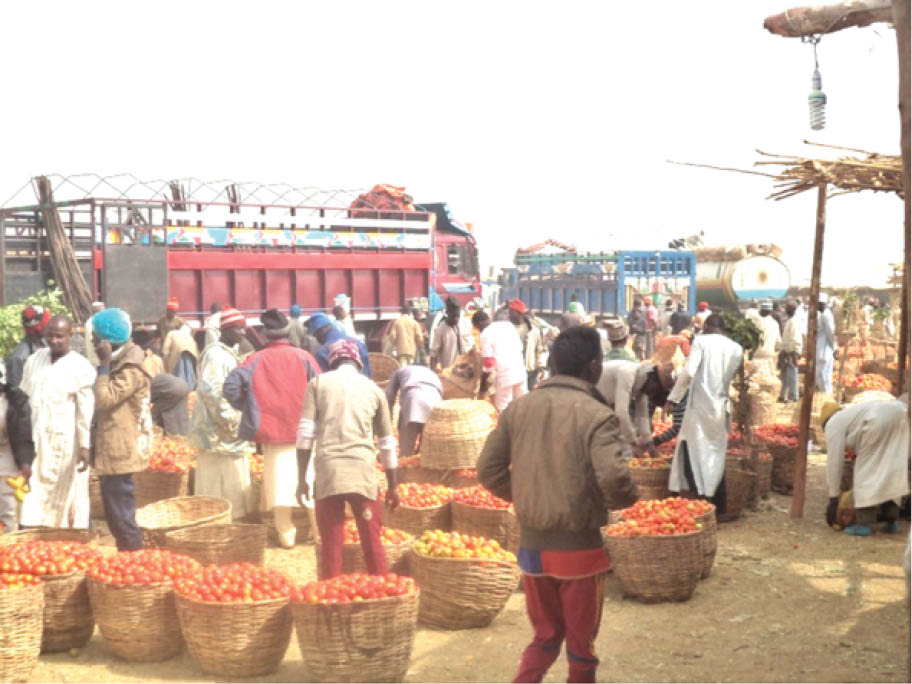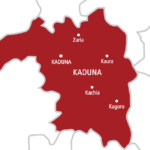Alhaji Abubakar Musa is the pioneer Managing Director of the New Nigeria Commodity Marketing Company (NNCMC), a private sector-led business vehicle for wholesale trading quality farm produce. In this interview with our Agric Editor, the MD explains, among other issues, why farmers are not getting best prices for their produce and what must be done to put an end to that. Excerpt:
Let me start by asking you how the idea of New Nigeria Commodity Marketing Company Limited (NNCMC) came about?
The company came on board basically to enable farmers get best prices for their produce, which will encourage them to do more.
We have the 19 northern states holding the stake and the New Nigeria Development Company (NNDC), which is the financial investment company for northern Nigeria also holding parts of the stake and of course, there are spirited individuals and institutions in the private sector that are also holding stake in the company.
So the idea is that 65 percent of the stakes goes to the private sector, which made up of individuals and institutions while the remaining 35 percent is held by the 19 northern governments. This is deliberate to make sure that the company operates as a private company so that the financial and operation disciplines come into play. So, basically this is the share structure and the funding structure is in two ways; we intend to draw funds from the equity contributions from the shareholders and then funds from the commercial and financial institutions but we will only take those ones that are cheap and flexible.
How is your mode of production going to be, that is how do you intend to be buying the produce from the farmers?
Our mode of production will be centered around the farmers, the ordinary farmers will be our central focus point. Although you will agree with me that it is not going to be easy dealing with individual farmers and that is why we will embrace the existing farmers’ cooperatives and associations.
In fact, all the production lines have the farmers’ associations, we have the primary association, the secondary association and the apex associations, so we will work with them accordingly by making them our central focal points. We will appoint them as our local buying agents, in other words, we will take them into full capacity by providing aggregation centres and they will now be buying produce in bags from their member famers. We will provide the grading system for them to grade their produce and buy from them and also by doing that, we have made them active members of sourcing commodity from the markets. We will be doing that to ensure that we give these farmers the final prices for the commodity.
The issue of price fluctuation has been the major problem for farmers, how do you intend to stablise this?
Price stability has always been the issue but as a commodity marketing company we will interface with the end users, which are manufacturing, processing companies, edible oil, flours and what have you. We are also interfacing with livestock mills where livestock feeds are produced, so also with the export markets to find out their needs, requirements and specifications. With all these at our disposal, we will now get the final prices for the produce. We will also be linking these farmers to the end users instead of using the middlemen because the price has always been affected by the middlemen. If a bag of maize is sold at N10,000 at the mills, the farmers hardly get N5,500 because of the activities of the middlemen. What we will do through the aggregation programme and the local buying agents is to make sure that the price at the end users get to the farmers and with this we will make our margin and the farmers will also make benefits. So this is how the farmers will benefit from our activities from this season on.

Farmers are already going into planting for the season, when are you starting full operation?
This farming season, we are going into full operation but in the last 12 months that we have existed, we have what we call a pilot operation. Let me give you example, during the last dry and wet seasons, we procured paddy rice and supplied to major rice millers in Nigeria. We procured them from our local farmers in Kebbi, Benue, Taraba, Adamawa and Jigawa states. We have also supplied them in best standard to major rice millers in Kano. The idea is to make sure that we get the market test and we have done that, we have leant our lessons from the dry season activities, we also leant our lesson from the wet season activities. The issues are there, lots of issues in terms of logistic, for example, there are issues of multiple taxations, issue of logistics, the issue that has to do with quality and even standard grading system. There is complete absence of measurement in our markets. All the grains I have seen in the markets are priced per bag while we sell in weighs, so we will have to balance that and at the end of the day, we will be buying in weighs and sell in weighs, that is what will make economic sense. This means there are lots of works that need to be done; we have started sensitizing the farmers on the need to take measurement, which will also benefit them.
Are you confidence that some of these noticed challenges will be fully addressed before you go into full operation this farming season?
O yes, why I am confident that we will overcome them is that we have already done some kinds of relationship buildings, some issues will be resolved from the government side, some will be resolved from the market end through the interface between us and some other stakeholders, so we will get through over them. For example, we advocate for the establishment of commodity corridors in this country and we have been able to work with the Nigeria Incentive-based Risk Sharing System for Agricultural Lending (NIRSAL) to identify some commodity routes notably from Benue, Kebbi up to Lagos. On these commodity corridors, we have interfaced with key stakeholders like FRSC, the Nigeria police, army, civil defence to make sure that these corridors work. We have defined strategies for it to work like having special number plates for produce vehicles, special paints for the trucks that will move round the produce. We will ensure with tax agencies that only the relevant taxes are paid to avoid multiple taxes. If you take commodity from Benue you get to Lagos without multiple taxes, take from Kebbi get to Lagos without multiple taxes, similarly to Kano and the rest. So cooperation with stakeholders will help to resolve these challenges we have seen.
Harvest of some produce will begin in few months, what is your advice for them to come out with acceptable produce?
My advice to farmers is that there are some best practices for every commodity at the point of harvest. Farmers should embrace technology; farmers should embrace best practices in terms of harvest, in term of handling these commodities and in term of storing them. This is where they lose values; you can harvest maize, rice but if you don’t handle them well, it can lose some substantial parts as part of post- harvest loses. If they don’t store the produce well, weevils and some other parasites can enter and damage the quality.
The second thing is that they must also embrace best practices in term of drying their crops. We should avoid moisture, dampness, we should also make sure we put them in standard bags, this way, you know for sure, you are going to get grade A commodity and we are going to pay a price for producing grade A commodity.




